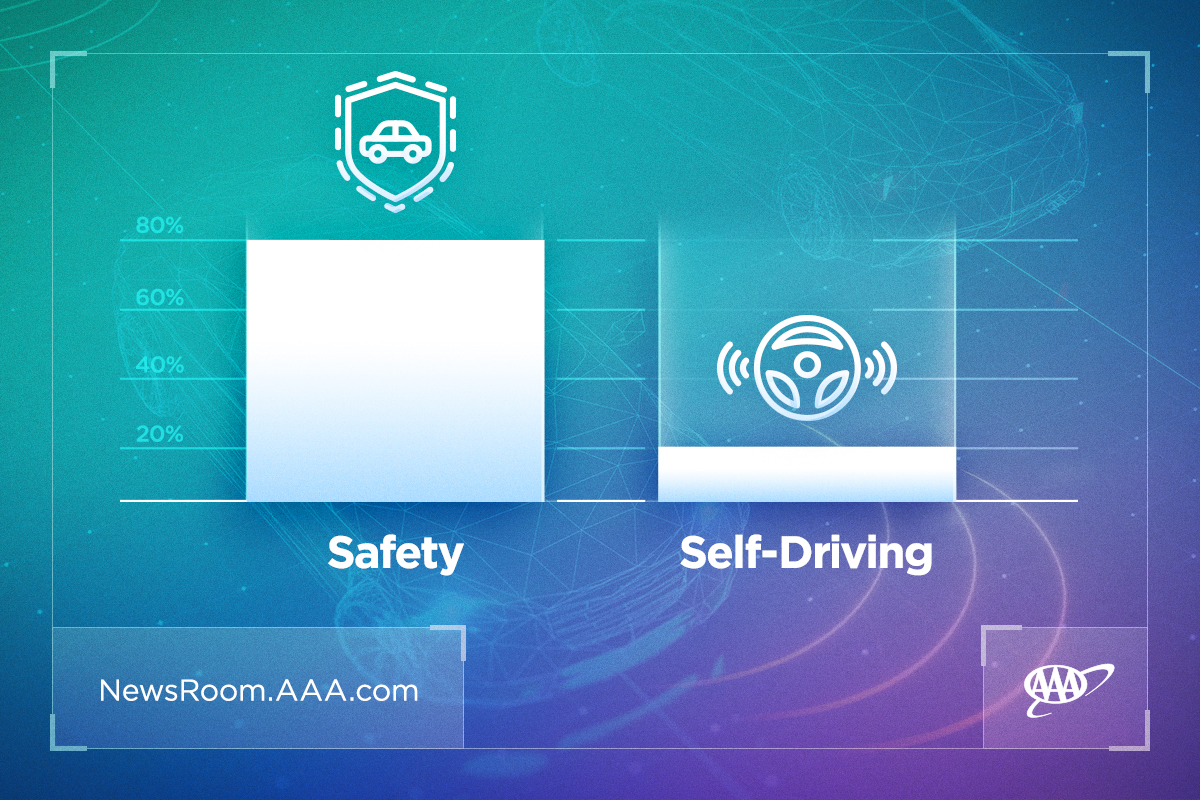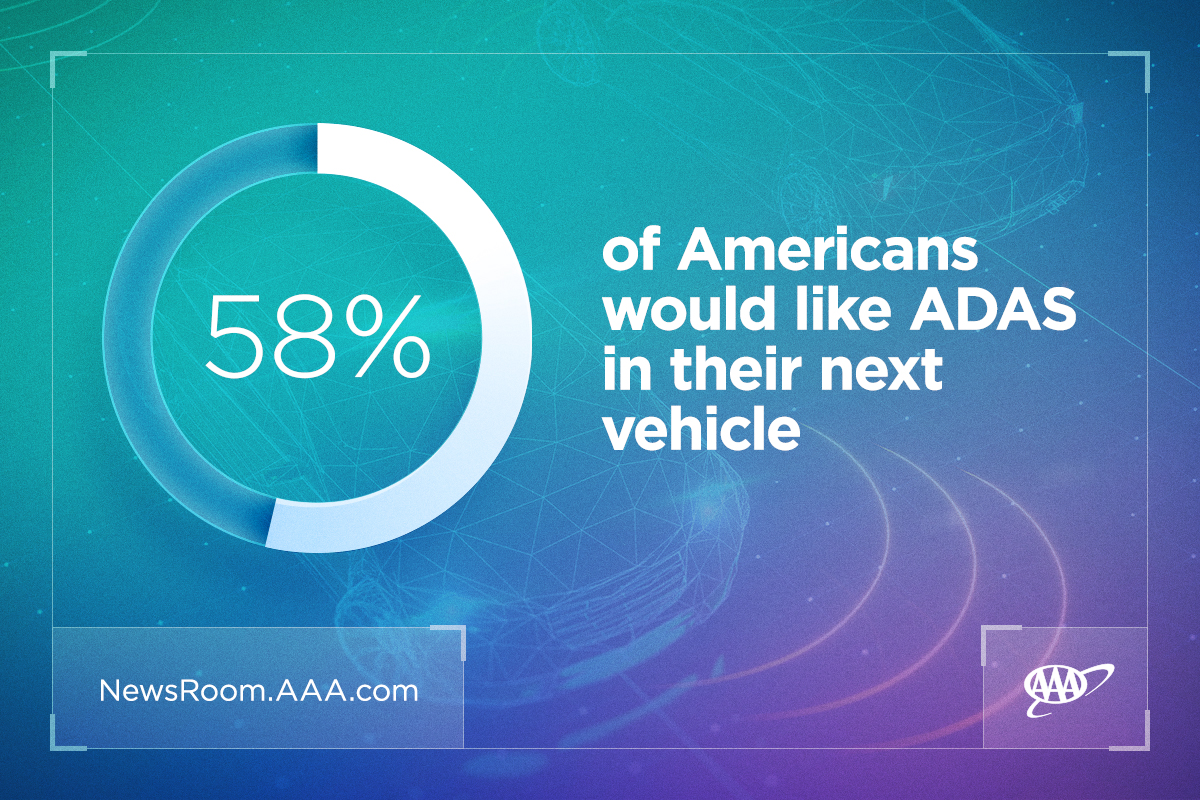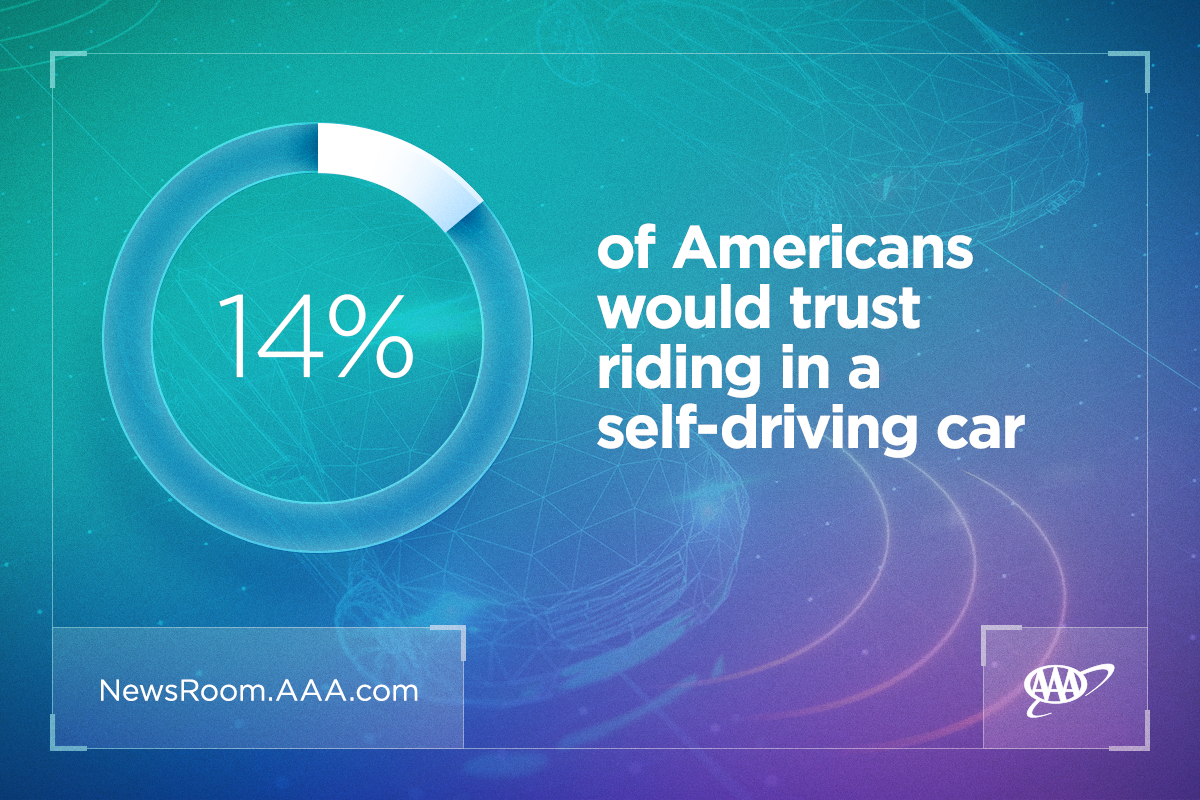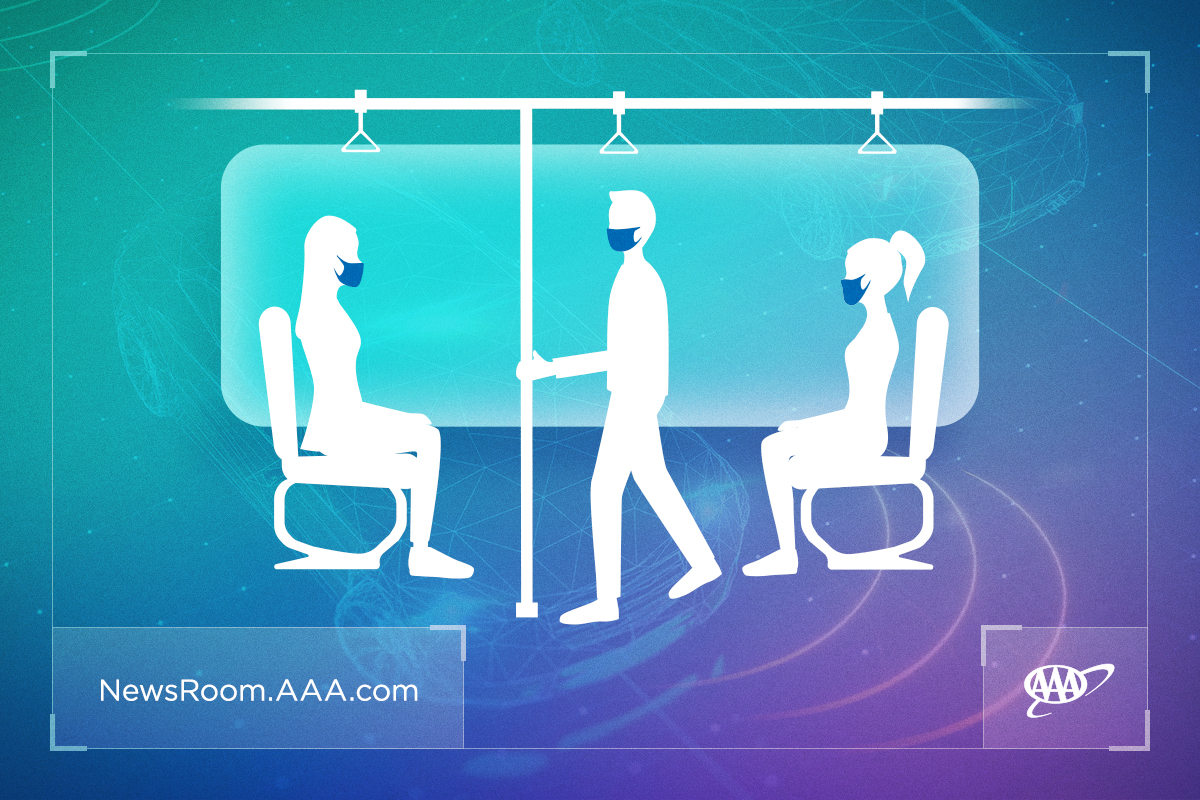PORTLAND, Ore., – A new survey from AAA shows that most drivers are interested in advanced vehicle technologies, but most aren’t ready for fully self-driving cars. Most drivers (80%) say they want existing vehicle safety systems such as automatic emergency braking and lane keeping assistance to work better, and more than half of drivers—58%—said they want these systems in their next vehicle. However, only 22% feel manufacturers should focus on developing automated vehicles.


Drivers still lukewarm about self-driving technology
The findings are in AAA’s annual automated vehicle survey. For six years, AAA has gauged consumer sentiment regarding emerging vehicle technology, focusing on self-driving vehicles. While consumers’ interest in owning a car with more advanced technology grows, they are still struggling to warm up to the idea of full vehicle automation.
Here are more key findings from this year’s survey:
- Only 14% of drivers would trust riding in a vehicle that drives itself, similar to last year’s results.
- Most drivers (86%) either said they would be afraid to ride in a self-driving vehicle (54%) or are unsure about it (32%).

“Our latest AAA survey shows that people are ready to embrace new vehicle technology, especially if it will make driving safer. Automakers hold the key to improving public acceptance of automated vehicles through fine tuning existing vehicle safety technology and providing consumers with clear understanding of how and when to use these systems,” says Marie Dodds, public affairs director of AAA Oregon/Idaho. “Consumers want to see current vehicle technology that works consistently and performs to the expectations set by manufacturers. This will pave the way for greater acceptance of automated vehicles.”
Nearly 96% of 2020 vehicle models came equipped with at least one advanced driver assistance system (ADAS) such as automatic emergency braking, blind spot warning or lane keeping assistance. Consumers who buy new will likely have at least one type of vehicle safety system and in many cases, this could be their first interaction with more advanced vehicle technology.
Previous AAA research has found that some systems, particularly those that provide the highest level of automation available to the public, do not always work as expected. These negative experiences could influence driver opinion of future vehicle automation. It also reinforces the need for manufacturers to continue to hone vehicle technology by expanding testing and focusing on including more real-world scenarios encountered by drivers.
COVID-19 has little impact
The pandemic has not changed opinions about self-driving vehicles. AAA asked drivers if COVID-19 would influence their decision to use a self-driving vehicle as an alternative to public transportation or ride-hailing. Only a relatively small number said they would be more likely to opt for a self-driving vehicle, but a larger number said COVID-19 would make no difference in affecting their decision.
| Using self-driving vehicles … | More likely to use | No difference | Less Likely to Use |
| As an alternative to public transportation | 21% | 42% | 18% |
| As an alternative to using a ride-hailing service | 19% | 41% | 19% |

Drivers also need to educate themselves on advanced driver assistance systems (ADAS)
Self-driving vehicles are still years away from being available to consumers. However, as testing on public roads expands, drivers will likely interact with various levels of new vehicle technology. Consumers should also find opportunities to educate themselves on when and how self-driving vehicles will be a part of daily life. AAA believes that a collective effort by both industry and consumers is what it will take to move the needle away from apprehension and closer toward acceptance.


Methodology
The survey was conducted January 15-17, 2021, using a probability-based panel designed to be representative of the U.S. household population overall. The panel provides sample coverage of approximately 97% of the U.S. household population. Most surveys were completed online; consumers without Internet access were surveyed over the phone.
A total of 1,010 interviews were completed among U.S. adults, 18 years of age or older. The margin of error for the study overall is 4% at the 95% confidence level. Smaller subgroups have larger error margins.
About AAA
AAA provides more than 61 million members with automotive, travel, insurance and financial services through its federation of 30 motor clubs and more than 1,000 branch offices across North America. Since 1902, the not-for-profit, fully tax-paying AAA has been a leader and advocate for safe mobility. Drivers can request roadside assistance, identify nearby gas prices, locate discounts, book a hotel or map a route via the AAA Mobile app. To join, visit AAA.com.
AAA news releases, high resolution images, broadcast-quality video, fact sheets and podcasts are available on the AAA NewsRoom at NewsRoom.AAA.com.
Find local news releases at https://oregon.aaa.com/community/media/media-contacts.html

